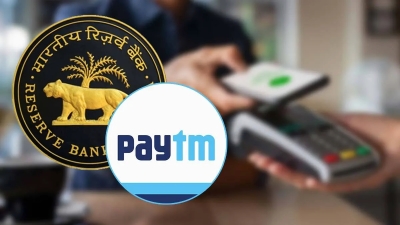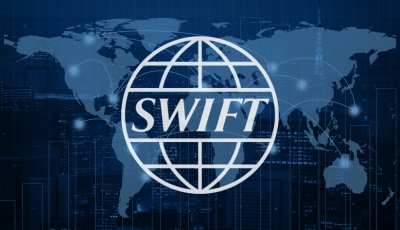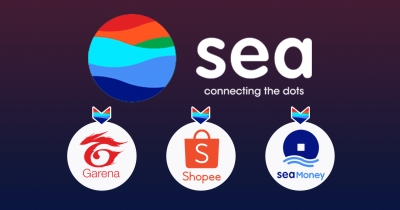Given the fragmentation that characterizes many parts of Asia Pacific’s fintech sector, consolidation could improve the competitive environment, reducing the need to heavily subsidize customers and allowing firms to invest more in research and development as well as improving the customer experience. Yet across the region, from the most affluent economies to those that are still developing, big-ticket M&A transactions remain few and far between. In the past five years, there have only been a handful, such as the 2020 merger of Gojek and Tokopedia, the National Bank of Australia’s acquisition of the Aussie neobank 86 400 in 2021 and Square’s purchase of Afterpay in 2021.
Why cash is still prevalent in Asia
Although the narrative in the financial industry is that digital is better, that is not always the case. Many rural economies across Asia operate on a largely informal and cash basis. A few factors are driving this. Firstly, there is often a lack of infrastructure to support cashless payments, such as limited internet access or banking services. Secondly, the rural populations often have a general distrust or lack of familiarity with digital payment systems. Additionally, the informal nature of many businesses in rural areas lends itself to cash transactions, which are perceived as more straightforward.
Japan steps up green finance efforts
To reach net zero by 2050, Japan aims to slash greenhouse gas emissions by 46% compared to 2013 levels by 2030. To support that objective, in June 2021, the Japanese government announced its Green Growth Strategy and created a US$15 billion Green Innovation Fund. An additional important part of Japan’s path to net zero will be the world’s first sovereign transition bonds.
South Korea charts middle path on crypto
South Korea has long had an enthusiastic cryptocurrency investing community. According to the Korea Financial Intelligence Unit (KoFIU), by mid-2024 Korea will have about 6 million crypto investors, equivalent to 11.5% of the population. At the same time, crypto related crime is rising in Korea. While the most infamous example remains Do Kwon’s multi-billion-dollar TerraUSD-Luna fraud, other, smaller scale scams are proliferating, necessitating new regulation to protect investors and both deter and penalize crime. According to the FoFIU, Korean digital asset exchanges flagged 49% more suspicious transactions in 2023 compared to 2022.
Should Grab and GoTo merge?
In late 2020, Grab and Gojek were said to be close to agreement on a merger. If the deal had gone through, it would have created a juggernaut that probably would have dominated ride hailing and food delivery in most key Southeast Asian markets, while the combined fintech operations would have been formidable. However, GoTo ultimately instead merged with Tokopedia in a deal that likely appealed more to Indonesian regulators. So it is with great interest that 3 ½ years later, we observe reported talks between Grab and GoTo about a merger.
Singapore, a small island nation known for its robust economy and forward-thinking policies, has been making concerted efforts to promote sustainability and address environmental challenges in recent years. The appointment of Ravi Menon, the former Managing Director of the Monetary Authority of Singapore (MAS), as the new sustainability officer, is a notable step towards advancing the country's sustainability agenda. However, while this move signifies Singapore's commitment to sustainability, the country's ability to make a significant global impact remains uncertain.
Digital banks in South Korea continue to thrive
South Korea’s digital banks are the exception to a rule in East Asia’s advanced economies: They are extremely successful by multiple metrics instead of redundant. While the relative weak digital offerings of incumbent banks in Korea helps explain the phenomenon, it is not the main reason. We believe that South Korea’s three digital banks – Kakao Bank, K Bank and Toss Bank – have been able to develop truly competitive products, in contrast to their counterparts in the other Asian tiger economies of Hong Kong, Singapore and Taiwan, and gradually have made themselves indispensable to many Korean retail customers.
Billease is the rare profitable BNPL firm
While the buy now, pay later (BNPL) concept has proven immensely popular with consumers worldwide, developing a sustainable business model as a BNPL focused fintech is a challenging endeavor. For that reason, it is always noteworthy when a BNPL firm reaches the profitability milestone. The Philippines’ Billease, founded in 2017, appears to have done so in 2023.
Fintech sector in Pakistan faces mounting challenges
Despite having significant promise for fintech investment, with one of the world’s largest unbanked populations, Pakistan’s digital finance sector faces mounting challenges as the broader startup ecosystem is finding it hard to attract funding. In the 2023 fiscal year, fintech funding in Pakistan fell 80% to just US$20 million while the number of deals decreased 44% to just eight.
Where digital banks in Asia can make a difference
Digital banks have sprung up across Asia in recent years. In many cases, they are having little impact on the overall banking market. Affluent societies like Singapore, Hong Kong, Japan and Taiwan are not lacking banking options. Even middle-income countries like Malaysia and Thailand have limited financial inclusion needs.
Cashless payments jump in Vietnam
Vietnam is one of the most promising markets for fintech in Southeast Asia, with the payments segment continuing to lead the way. While talk of Vietnam going truly cashless is premature, there is a steady transition to digital payments in the country. Data compiled by the State Bank of Vietnam show that non-cash payment transactions increased by 63.3% in volume and 41.45% in value in January, compared to the same period in 2023. Many Vietnamese banks now have over 90% of their transactions conducted via digital channels.
The Philippines in late March began to blocking access to Binance, the world’s largest cryptocurrency exchange by trading volume. The country’s Securities and Exchange Commission (SEC) said it received the assistance of the National Telecommunication Commission (NTC) to block access to Binance’s website and online trading platform, according to a statement published by the SEC.
Opportunities and challenges for China in green finance
In the fourth quarter of 2023, China emerged as the top green bond market globally. Sales of internationally aligned green bonds in China reached US$21.83 billion in the final three months of 2023, up 131% on a quarterly basis, according to the Climate Bonds Initiative data. This was well ahead of the No. 2 market, the U.S., which had green bond sales of US$12.87 billion and No. 3 Germany, which recorded sales of US$7.14 billion.
Ant International’s global expansion efforts have grown increasingly strategic since the launch of its Alipay+ and its pivot to boosting interoperability among e-wallets in Asia. While it is difficult to measure the financial success of these efforts, the growth of Ant’s international payments network in the last 18 months has been impressive and the company has smartly pared back its presence in certain markets due to geopolitical pressures. With international travel having recovered to pre-pandemic levels, Alipay+ likely has significant room to grow, especially in neighboring countries.
Singapore-based payments fintech Nium has been busy expanding internationally as it seeks to put itself in the most favorable position possible ahead of a planned IPO in 2025. In recent months, Nium has expanded on multiple continents, from South America to different parts of Asia.
P2P lending in Indonesia is at a crossroads
The tumult in Indonesia’s P2P lending industry should not come as a surprise. It is exceedingly difficult to both regulate this industry fairly and allow it to maximize financial inclusion benefits. Strict regulation such as is practiced in Taiwan and South Korea (though Seoul may make some changes soon) minimizes malfeasance but also limits the usefulness of the platforms. Amid the current meltdown of P2P lending platforms, which is hitting retail investors hard, the sector faces an inflection point in Indonesia.
With Thailand finally getting its digital banking application process underway, it is worth taking a closer look at the prospective applicants. As expected, startups are nowhere to be found. Instead, the likely applicants – and winners – are a mix of Thailand’s ultra-wealthy tycoons, prominent incumbent banks and Asian tech giants.
Paytm will survive, but faces greater uncertainty
It has been a rollercoaster seven weeks for India’s preeminent fintech Paytm, which on January 31 was accused by the Reserve Bank of India (RBI) of “persistent noncompliance.” To be precise, it was Paytm Payments Bank that the RBI named, and it is the payments unit of the company that ceased to exist as of March 15. The good news for Paytm is that the RBI’s crackdown on its payment bank is not a lethal blow – and was never intended as such.
How Swift is staying dominant in cross-border payments
With funding for fintech startups having fallen precipitously from the days of ultra-low interest rates and a focus on growth at all costs, a reality is setting in: Disrupting the giants of incumbent financial services is no easy task. In many cases, it has proven elusive.
Hong Kong accelerates work on e-HKD
The March 7 launch of Hong Kong’s wholesale CBDC project was memorable. Firstly, the enthusiasm of the city’s financial regulators for this project is strong. While painting in broad brushstrokes, they outlined some lofty objectives for the digital HKD. The project aims to develop an interoperable platform that will improve efficiency, transparency and financial inclusion in the monetary and financial systems. “We’re calling it Project Ensemble” internally, to conjure a group of items working together, Hong Kong Monetary Authority (HKMA) deputy chief executive Howard Lee said at a press conference. “We hope it will play beautifully, like music.
UPI gains traction internationally
India’s United Payments Interface (UPI) payments rail is the most successful initiative of its kind. Domestically, UPI has achieved a dominance that no other payments rail is likely to surpass. According to a report by PwC, it is projected that daily UPI transactions will reach 1 billion by FY 2026-27, representing approximately 90% of India's non-cash transactions. 2024 started with UPI transactions processed in January reaching a record high of INR 18.41 trillion. Given UPI's success, India has sought to expand its footprint internationally and in the past few years it has become available in a number of countries from the United Arab Emirates and Bhutan to the UK and France. Yet questions remain about whether UPI can serve as a foundational platform for digital payments outside of India.
Thailand moves forward on digital banking
Throughout Asia, most countries have introduced digital banks in some form, either to increase market competition, boost financial inclusion or both. Thailand is an exception. It has approached digital banking with a marked lack of urgency, with the Bank of Thailand (BoT) mulling the idea for several years before in Jan. 2023 stating that it would allow digital banks by 2025. In a March 5 announcement, the Kingdom’s Finance Ministry said that Thailand will accept applications for virtual banks within the next six months with the goal of supporting people with no or limited access to financial services.
Cybersecurity has always been a crucial aspect of operations for financial institutions and technology providers alike. However, the intensifying digitization of financial services, combined with increasing computational power and the ongoing shift of financial activities online, is amplifying cybersecurity’s importance. With the annual cost of cybercrime soaring worldwide, financial institutions and market participants across Asia Pacific must reevaluate and reinforce their cybersecurity.
Sea hits profitability milestone
It’s been a long road to reach this point but Sea has finally done it: The Singapore-based company recorded its first full year of profitability in 2023. Net income was US$163 million, while revenue reached US$13 billion, up 5% from 2022. However, Sea owed its profitability more to its performance in the first half of 2023 than the second as it lost money in both the third and fourth quarters. Questions remain about the company’s long-term outlook given the intensity of competition it faces in both e-commerce and digital financial services.
Singapore redoubles its efforts against financial crime
Singapore has been battling a surge in financial crime since the coronavirus pandemic, with 2023 being notable as the city-state dealt with its largest ever money laundering case. The investigation is ongoing and thus far authorities have seized more than US$2.2 billion. However, more mundane types of financial crime continue to be a challenge for Singapore, notably online scams. In 2023, scams reported in Singapore rose roughly 47% to 46,563, the highest amount since the police began tracking this type of crime in 2016.
Post-Payments Bank Paytm starts to take shape
It increasingly appears that India’s fintech unicorn Paytm has a way forward from the regulatory pressure it is facing, but the company will have to part ways with its payments bank and restructure accordingly. To that end, India's Financial Intelligence Unit (FIU) on March 1 imposed a penalty of 54.9 million rupees (US$662,565) on Paytm Payments Bank for violations in reporting illegal money routed through its accounts. Given that Paytm overall has a market capitalization of almost US$3.3 billion, the fine itself is manageable, but the loss of its payments bank will require that the company rejig its operations to remain competitive.
Assessing the big bet Hong Kong has made on crypto
Since its return to China in 1997, Hong Kong has become the country’s indispensable offshore financial center, with considerable international links. It has engaged in financial innovation, such as the cultivation of the world’s premier offshore renminbi trading hub. However, Hong Kong also faces much more competition from Singapore than it did in the late 1990s, and other Asian cities like Tokyo.
There is still no timeline for mBridge to go live
Undertaking cross-border payments involving central bank digital currencies (CBDCs) is a complicated endeavor, and despite some media hype in the summer of 2023, the mBridge project of the Bank of International Settlements (BIS) and the central banks of mainland China, Hong Kong, Thailand and the United Arab Emirates (UAE) did not launch late last year. Many questions remain about the ultimate utility of using CBDCs in cross-border payments as well as any attempt to directly challenge the US dollar in global financial flows.
Why Razorpay has fared better than Paytm
Both Razorpay and Paytm are Indian fintech unicorns that have at different times struggled with mercurial regulators, but that’s about where the similarities end. Razorpay has focused only on the B2B segment, while Paytm has tried to gain a foothold in both retail and non-retail payments. While both companies have relied heavily on venture capital investment, Razorpay has very little, if any exposure, to China in this regard, while Ant Group’s stake in Paytm is coming under increasing scrutiny. With Paytm’s payments bank in mortal danger and Razorpay preparing to move its domicile from the U.S. to India while planning an IPO, the two fintech unicorns are both at inflection points. However, just one of them is ascendant.
Grab made a profit in Q4 but challenges remain
Given that ride hailing and food delivery tend to burn cash, Grab’s profitable fourth quarter augurs well for the Singapore-based company, especially considering brisk growth in its fintech services. However, we should keep in mind that it was a modest profit of US$11 million, which seems to have come about in part due to a "reversal of an accounting accrual," according to a statement by the company. Revenue in the October-December period, meanwhile, reached US$653 million, ahead of a consensus estimate of US$629 million.
More...
Across Asia, super apps are facing a moment of truth
The chill in fintech funding that saw investment in the sector fall 75% in 2023 dovetails with growing investor skepticism of unsustainable business models. In private markets, that is reflected in the difficulty of raising big-ticket funding, while for listed companies it is painfully obvious from battered share prices, regulatory travails and a continuing struggle to shift away from a growth-first ethos.
Platform companies – or as they often refer to themselves, “super apps” – in Southeast Asia, India and Korea are all to some degree facing one or more of these challenges, and it is unclear how well prepared they are to make changes to their business models to ensure future growth is sustainable.
Don’t say we didn’t warn you
Some of the most prominent platform companies in Asia are facing intensifying regulatory scrutiny due at least in part to their own missteps. No matter what the outcome, there will be implications for their fintech businesses given the paramountcy of customer trust in financial services.
The latest erstwhile high flyer to fall afoul of regulators is India’s Paytm, whose payments bank has been ordered to cease providing most services by Feb. 29 and which could lose its payments license. The Reserve Bank of India (RBI) and other government agencies suspect the payments bank of multiple violations, notably inadequate money-laundering controls. While Paytm has denied any wrongdoing and has publicly conveyed a sense of being caught off guard, media reports suggest that the RBI had warned the company over problematic dealings between its payments bank and payments app over the past two years that were not heeded. It is likely that in its long-running rush for growth at all costs, which included expansion into everything from gold investment to stock trading, Paytm may have overlooked important aspects of compliance.
Meanwhile, China’s Ant Group is just starting to emerge from a regulatory crackdown that lasted almost three years and sharply decreased its valuation and margins on many of its services. If it does eventually go public, Ant will not come close to the $34.5 billion it was expected to raise in November 2020 – which would have been the largest IPO of all time. Further, Ant founder Jack Ma – the architect of some of its greatest successes as well as its falling out with regulators given his unwillingness to read the writing on the wall – has been forced to relinquish control over the company’s operations. It is unclear how successful Ant will be when it is regulated more like a bank and does not have Ma at the helm.
While its misstep has not yet led to consequences as significant as those faced by Paytm or Ant, Korea’s Kakao has also recently had regulatory issues. In November 2023, prosecutors raided Kakao's office building in Pangyo, Gyeonggi, alleging that the tech juggernaut had engaged in stock manipulation during its takeover of K-pop agency SM Entertainment. Prosecutors say that Kakao violated Korea’s Capital Markets Act. Because of that alleged offense, chief investment officer Bae Jae-hyun was indicted. Prosecutors reported that Bae and two other executives manipulated the stock price 409 times on Feb. 16, 17, 27 and 28. They further alleged that Kakao did not report the stock purchases to the Financial Supervisory Service.
Investors know best
The reaction of investors in public markets to the travails of platform companies in Asia is instructional for evaluating real-world implications of their missteps. When these companies were still protected by the mysterious working of private markets, it was hard to measure the impact of their regulatory problems or questionable business models. No longer.
Across the board – and despite their almost universally strong fintech businesses – these companies are not performing well in the stock market. The most severe at the moment is Paytm. Currently trading at about 325 Indian rupees, it has fallen 23% in the past five days and 56% in the past month, wiping out billions of dollars in market capitalization. The freefall is likely to continue unless Indian regulators give the company a reprieve.
Meanwhile, Kakao Pay’s share price has fallen about 14% in the past month to 48,800 won, while Kakao Bank’s has decreased by about 2% to 29,800 won. While Kakao Bank posted a net profit in 2023, Kakao Pay lost money.
Some platform companies that have not had regulatory trouble, but whose business models remain unproven, are also underperforming in the stock market as investors remain unconvinced about their prospects. These companies include Singapore’s Sea Group and Grab as well as Indonesia’s GoTo. Sea’s stock has fallen precipitously from an all-time high of $366.99 on October 19, 2021 to less than $43. Grab’s share price has failed to rise above the low single digits, while GoTo’s has fallen 30% in the past year and 9% in the past six months.
Back to basics
With the era of cheap, easy money – which encouraged startups with questionable business models to burn cash to grow quickly – over, we suspect that some of the firms will have to make adjustments to their core business models to remain competitive with both incumbent banks and certain pure-play fintechs that are not weighed down with the baggage of things like a ride-hailing or food-delivery business, or deep-seated regulatory travails.
Something we often hear from defenders of these companies is that it takes Big Tech a while to become profitable. They point to Amazon and Facebook, which needed eight and five years, respectively, to achieve profitability. Google, meanwhile, became profitable less than three years after its founding.
We find that argument of dubious accuracy. Companies like Paytm, Grab and GoTo are more than a decade old, while Sea is nine years old, and they are not first movers in their respective industries in the same way the U.S. companies were. In fact, the Southeast Asian companies didn’t even enter financial services until they realized they needed a better story to tell investors.
Ant Group, on the other hand, was a first mover and despite its restructuring and reduced margins, will be a major force in China’s fintech sector – and maybe in some overseas markets eventually – for years to come.
The same is true for Ant-backed Kakao to some extent, and the company has an advantage over Southeast Asian super apps in that it is not stretched too thin and its businesses are better separated.
Looking ahead, the forthcoming earnings reports of Grab, GoTo and Sea should shed some additional light on where they need to make adjustments to their respective business models. We expect that all three companies will report strong growth in their fintech units in the fourth quarter of 2023, but we are less certain about their other businesses.
Fintech is a bright spot for Rakuten
Japanese e-commerce giant Rakuten has struggled in recent years amid intensifying competition in its domestic market and high costs linked to its decision to move into mobile communications. However, digital financial services is a bright spot for Japan’s largest platform company and Rakuten Bank’s April 2023 IPO – which raised US$624 million – was Japan’s largest market debut since 2018 when SoftBank’s telecoms unit raised US$23 billion. The stock has gained more than 36% since then and is currently trading at 2,627 yen (US$17.49).
Crypto hacking remains a serious problem
With the crypto bear market receding and the possible return to a bull market, it is interesting to note that the amount stolen from crypto exchanges fell in 2023. However, the overall number of digital asset hacks still grew. Maybe it was the belief that the bear market would endure that partially deterred the cybercriminals? Probably not. As it turns out, the main reason that less crypto was stolen last year was that digital asset platforms are becoming more sophisticated in their security and responses to attacks, and are working more successfully with law enforcement than in the past.
Why Kakao Bank is performing better than Kakao Pay
As a core fintech service, payments are often tougher to monetize than higher-margin segments like lending, and this helps to explain why Kakao’s digital banking unit continues to outperform its payments arm. While Kakao Bank had yet another record year in 2023, the South Korea tech juggernaut’s payments swung to a loss. Kakao Pay has been trying to follow the Ant Group (a key Kakao Pay investor) formula which worked so well for the Chinese company – operating payments and digibanking as two distinct businesses. But we wonder if this model will work for the Korean company in the long run.






























